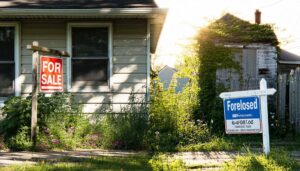
This post was last modified on September 4, 2024.
When you buy a property, your real estate agent will inform you about deed restrictions, since they can markedly impact your ownership experience.
These rules can dictate everything from the color of your house to the types of pets you can have. Understanding these restrictions is important, especially if you want to avoid unexpected penalties or conflicts with your neighbors.
What Are Deed Restrictions?
Deed restrictions, often referred to as restrictive covenants, are legally binding provisions imposed on property deeds that dictate how the property can be used or modified. These restrictions can play a role in maintaining eco-friendly practices within a community, as they may include stipulations regarding energy efficiency or sustainable building materials in line with current trends in eco-friendly real estate.
When you acquire a property subject to these restrictions, you’re entering into an agreement that limits certain actions you may wish to take regarding your property. These stipulations can cover a range of issues, including architectural guidelines, land usage, and maintenance requirements.
The enforcement mechanisms for deed restrictions typically involve either private individuals or homeowners’ associations (HOAs) who hold the authority to guarantee compliance. If a violation occurs, these entities may pursue various remedies, including seeking an injunction or filing a lawsuit to compel adherence to the restrictions.
It’s important to understand that such enforcement mechanisms aim to maintain the integrity of the community and protect property values.
Legal consequences of failing to comply with deed restrictions can be significant. Not only may you face legal action from your neighbors or the HOA, but you could also incur financial liabilities, such as fines or the cost of restoring the property to its original condition.
In some cases, repeated violations can lead to more severe outcomes, including the possibility of losing the ability to use the property as intended. As a result, comprehending the nature and implications of deed restrictions is key for any property owner, as adherence to these covenants preserves both individual and communal interests.
Types of Deed Restrictions
When considering property ownership, it’s helpful to recognize the various types of deed restrictions that may apply. These restrictions serve to regulate the use, development, and maintenance of properties, ensuring compliance with both building codes and zoning laws.
Here are three primary types of deed restrictions:
- Use Restrictions: These dictate how you can use your property. For example, a restriction might prohibit commercial activities in a residential zone, aligning with local zoning laws.
- Structural Restrictions: These impose limitations on the type or size of structures you can build. They may require compliance with specific building codes or architectural guidelines, protecting the aesthetic integrity of a community.
- Covenants: These are promises made by the property owner regarding the future use of the property. For instance, you might agree to maintain a certain level of landscaping or refrain from making disruptive alterations, ensuring consistency within the neighborhood.
Purpose of Deed Restrictions
Fundamentally, deed restrictions serve as legally binding covenants that regulate the use and appearance of properties within a designated area. By establishing community standards, these restrictions help guarantee a cohesive aesthetic and uniformity in property maintenance, which collectively preserves property values.
In addition, similar to due diligence practices, these restrictions help mitigate potential risks and protect property owners from unforeseen liabilities.
One primary purpose of deed restrictions is to prevent incompatible land uses that could detract from the neighborhood’s character. For instance, restrictions may prohibit commercial activities in residential zones, thereby fostering a peaceful living environment. Additionally, these restrictions often delineate architectural guidelines, guaranteeing that new constructions or renovations align with established community aesthetics.
Enforcement mechanisms are integral to the effectiveness of deed restrictions. Homeowners’ associations or similar governing bodies typically oversee compliance, possessing the authority to impose penalties for violations. Such enforcement not only helps maintain community standards but also protects the collective interests of property owners.
When homeowners adhere to these restrictions, they contribute to the overall stability and desirability of the neighborhood, which can positively influence property marketability.
How to Find Deed Restrictions
Understanding the implications of deed restrictions is only the beginning; knowing how to locate these restrictions is equally important for property owners. Just like understanding appurtenances in real estate can impact property value and ownership, locating deed restrictions is key for protecting your rights effectively.
Here’s how you can find deed restrictions associated with your property:
- Consult County Records: Start by visiting your local county clerk or recorder’s office. They maintain public records, including property deeds that often contain restrictions.
- Online Property Databases: Many counties offer online access to property information. Search for your property using the address or parcel number to find any recorded restrictions.
- Title Companies or Real Estate Attorneys: Consulting a title company or a real estate attorney can provide deeper insights. They can perform a detailed title search and identify any potential restrictions that may not be apparent in public records.
Frequently Asked Questions
Can Deed Restrictions Be Changed or Removed After Implementation?
Yes, deed restrictions can be modified or removed through a formal process. You’ll need to gather consent from the affected parties and follow any stipulated procedures, ensuring compliance with local laws and regulations governing deed restriction modifications.
Who Enforces Deed Restrictions in a Neighborhood?
In a neighborhood, enforcement agencies and neighborhood associations typically enforce deed restrictions. They monitor compliance, address violations, and can impose penalties to guarantee residents adhere to established rules and maintain community standards effectively.
Are Deed Restrictions Legally Binding for Future Property Owners?
Yes, deed restrictions are legally binding for future property owners, serving the deed’s purpose to protect property rights. When you purchase property, you’re agreeing to adhere to these restrictions, ensuring compliance with neighborhood standards.
What Happens if I Violate a Deed Restriction?
If you violate a deed restriction, you may face significant penalties, including fines or mandated compliance. Legal consequences could also involve court action from other property owners seeking enforcement of the restriction.
How Do Deed Restrictions Affect Property Value?
Deed restrictions can greatly influence property value by maintaining property aesthetics and enhancing market appeal. When properties conform to established guidelines, they often attract more buyers, thereby potentially increasing overall market demand and resale potential.




